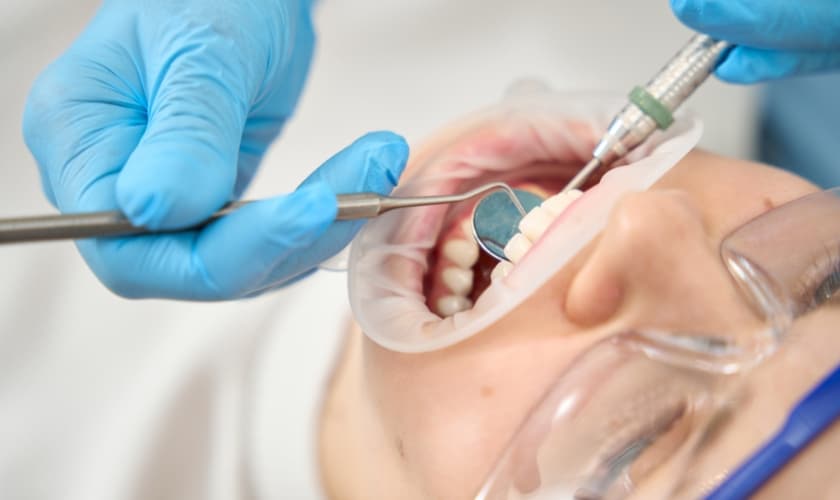The benefits of dental implants go far beyond a beautiful smile. While restoring the appearance of missing teeth is one of the most apparent advantages, dental implants can have a profound impact on your overall health and well-being.
Oral health is deeply connected to many aspects of the body, influencing everything from cardiovascular health to mental well-being. In this blog, we’ll explore the connection between dental implants and your overall health, offering a fresh perspective on how oral health plays a vital role in your well-being.
Why Dental Implants Are More Than Just Cosmetic
Dental implants are artificial tooth roots, typically made of titanium, that are surgically placed into the jawbone to support a replacement tooth or bridge. They mimic the function of natural teeth, offering long-lasting, durable solutions for those who have lost teeth due to injury, decay, or periodontal disease.
But what makes them stand out is their holistic impact:
- Restore natural function: Dental implants behave like natural teeth, allowing you to chew, speak, and smile with confidence.
- Preserve jawbone health: Unlike dentures, which can cause bone loss over time, implants stimulate the jawbone and prevent bone deterioration.
- Enhance comfort: Since implants fuse with the bone, they provide a stable and secure fit, avoiding the discomfort of removable dentures.
These benefits set the stage for improved physical health and well-being, as a healthy mouth plays a key role in your body’s overall condition.
The Oral-Systemic Health Connection
The mouth is often called the gateway to the body, and this is no exaggeration. Your oral health directly affects your overall health. Poor oral hygiene can lead to gum disease, which has been linked to several systemic health conditions. Let’s break down some of the key ways oral health and overall health are connected.
1. Impact on Cardiovascular Health
Studies have shown a strong link between gum disease and heart disease. When bacteria from gum infections enter the bloodstream, they can cause inflammation and increase the risk of cardiovascular issues, including:
- Heart attack
- Stroke
- High blood pressure
How dental implants help: By replacing missing or damaged teeth, dental implants promote healthier gums and reduce the risk of infection. With a healthier oral environment, you minimize the chances of harmful bacteria entering your bloodstream.
2. Maintain Bone Health
One of the often-overlooked aspects of losing teeth is the impact it has on your jawbone. The roots of your teeth stimulate the bone, helping maintain its density and structure. When you lose a tooth, the jawbone begins to deteriorate, which can lead to further tooth loss and changes in facial structure.
How dental implants help: Implants act as artificial tooth roots, providing the necessary stimulation to prevent bone loss. By preserving your bone density, implants not only keep your facial structure intact but also improve your long-term oral health.
Mental Health Benefits of Dental Implants
Beyond physical health, dental implants also contribute significantly to mental and emotional well-being. Here’s how:
3. Boosting Self-Confidence
Tooth loss can severely affect a person’s self-esteem. Missing teeth can make people feel self-conscious about their appearance, leading to a reluctance to smile, talk, or engage in social situations. This can have a negative impact on both personal and professional relationships.
How dental implants help: Dental implants restore a natural-looking smile, allowing you to regain your confidence. With a fully restored smile, individuals are often more likely to engage socially and feel good about themselves.
4. Reduce Anxiety and Stress
Struggling with tooth pain, missing teeth, or uncomfortable dentures can contribute to daily stress. Constant discomfort or worry about dental issues can increase anxiety levels, affecting sleep, mood, and overall mental health.
How dental implants help: The secure fit and functionality of dental implants eliminate the discomfort and worry associated with missing teeth or ill-fitting dentures. This peace of mind can reduce stress and improve emotional well-being.
Physical Health Advantages of Dental Implants
In addition to improving oral health and mental well-being, dental implants offer physical health advantages that benefit the entire body.
5. Improved Digestion
Chewing is the first step in the digestive process. When you lose teeth, your ability to chew food properly is compromised. Poor chewing can lead to digestive issues such as indigestion and malabsorption of nutrients.
How dental implants help: Dental implants restore your ability to chew naturally, improving the breakdown of food and aiding in proper digestion. This leads to better nutrient absorption, contributing to overall health.
6. Prevent Further Tooth Loss
When a tooth is lost, the surrounding teeth can shift, leading to misalignment and additional tooth loss over time. Misaligned teeth can also increase the risk of plaque buildup, leading to decay and gum disease.
How dental implants help: By filling the gap left by a missing tooth, implants prevent adjacent teeth from shifting out of place. This not only helps maintain a healthy bite but also protects your remaining teeth from unnecessary strain and damage.
How Oral Health Impacts Your Immune System
Your immune system is your body’s first line of defense against infections and diseases. Poor oral health can tax your immune system, making it less effective at fighting off other illnesses.
7. Reduce Inflammation
Chronic inflammation in the mouth, often caused by gum disease, can spread throughout the body, contributing to conditions such as diabetes, respiratory issues, and autoimmune diseases. Inflammation is a response by the immune system to fight off bacteria, but when it becomes chronic, it weakens the body’s overall immune response.
How dental implants help: By improving your oral health and reducing the risk of gum disease, dental implants help lower inflammation in the body, promoting a stronger immune system.
Dental Implants Support Total Well-Being!
Dental implants provide more than simply cosmetic benefits. By restoring function, promoting bone health, and improving your ability to chew and speak, they contribute to your overall physical and mental well-being.
The connection between oral health and systemic health is clear, and dental implants play a pivotal role in maintaining both. In summary, dental implants:
- Improve cardiovascular health by reducing gum disease risk
- Preserve jawbone structure and prevent bone loss
- Boost self-confidence and reduce anxiety related to tooth loss
- Enhance digestion and nutrient absorption through improved chewing
- Prevent further tooth loss and misalignment
- Support a stronger immune system by reducing inflammation.





